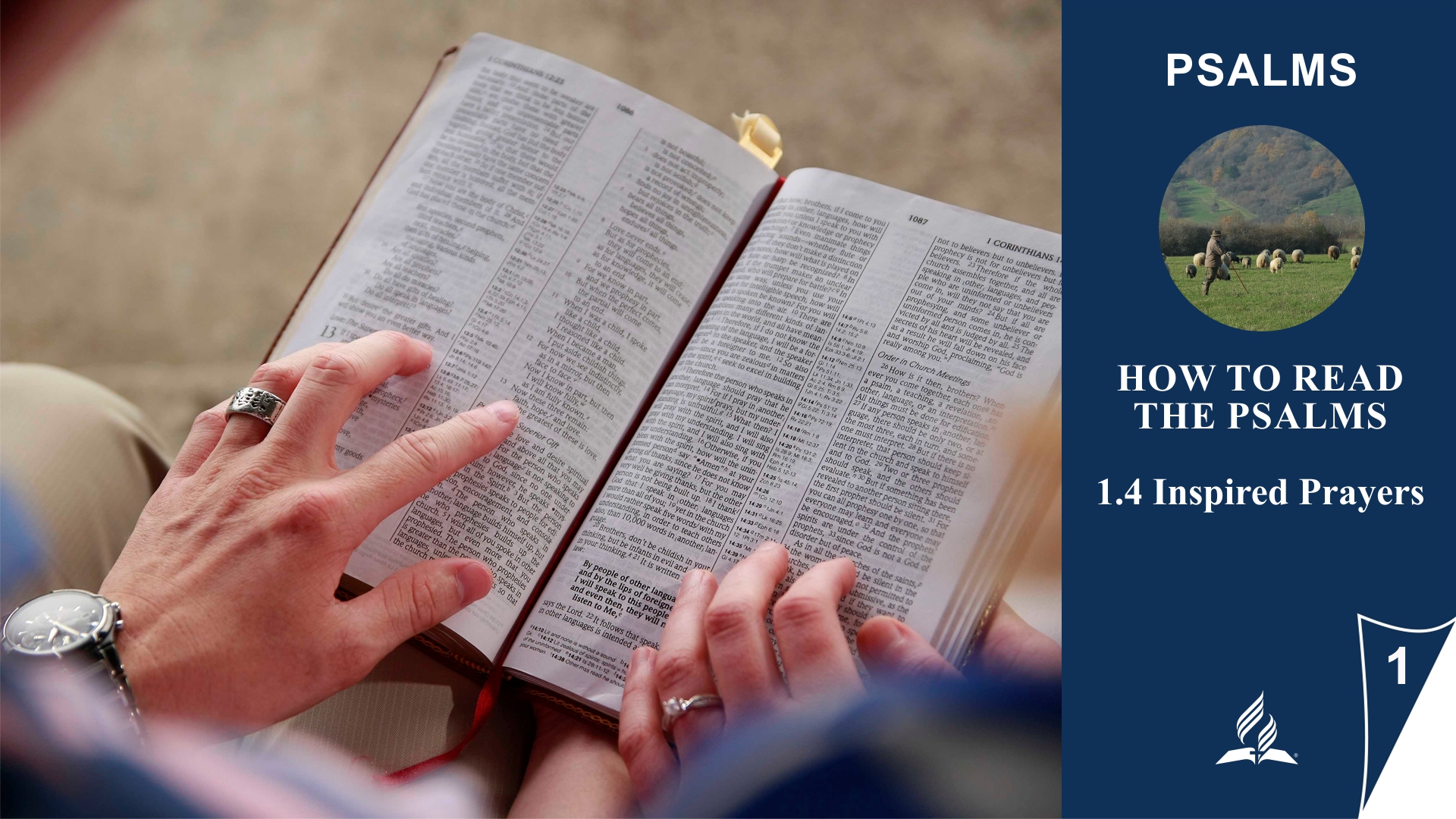Lesson 1: How to Read the Psalms | 1.4 Inspired Prayers


1.4 Inspired Prayers
Read 2 Samuel 23:1–2 and Romans 8:26–27. What do these verses teach us about prayer?
These two verses provide important lessons about prayer:
-
Prayer as Divine Inspiration:
-
In 2 Samuel 23:1–2, we see that David’s words are portrayed as divine inspiration. The Spirit of the LORD spoke through David. This shows that prayer is not merely a human act but that the Holy Spirit can actively participate in our prayers, guiding us in our expressions.
-
-
The Spirit as Help in Prayer:
-
Romans 8:26–27 indicates that the Spirit of God helps us in our weaknesses, especially when we don’t know how to pray appropriately. The Holy Spirit intercedes for us and uses groanings too deep for words to assist us in prayer.
-
-
The Role of the Holy Spirit:
-
Both verses emphasize the role of the Holy Spirit in prayer. In 2 Samuel 23, the Spirit of God is portrayed as the source of divine inspiration, while Romans 8 emphasizes that the Spirit intervenes in our weaknesses and intercedes for us, even when we are unsure how to pray.
-
-
Seeking God’s Will in Prayer:
-
Romans 8:27 mentions that the Spirit of God searches the mind of the Spirit and knows what the saints need. This underscores the importance of seeking God’s will in prayer and being guided by the Holy Spirit.
-
In summary, these verses teach us that prayer is not just a human act; the Holy Spirit actively participates in prayer, helps us in our weaknesses, and leads us in harmony with God’s will. They emphasize the divine dimension of prayer and the connection between the believer and the Holy Spirit in the process of prayer.
The Psalms are not mere words but inspired expressions of the relationship between God’s people and their Creator. These prayers and praises arise from a living interaction with God, marked by personal address and sincere supplication.
The psalmists not only address God but implore Him with words like “hear,” “look upon,” “answer me,” and “deliver my soul.” These prayers are honest expressions that reveal the intimacy of a seeker with his God.
The beauty of the Psalms lies in the fact that they are not just human words but God’s Word itself in the form of devout prayers and praises. In line with Romans 8:26–27, the Psalms reveal moments of intimacy where the Spirit of God intercedes with groanings too deep for words on our behalf.
Even Jesus quoted from the Psalms, underscoring their timeless relevance. While some Psalms refer to historical events, they speak in their spiritual depth to all people. Regardless of the life situation we find ourselves in—hope, praise, fear, or sorrow—the Psalms are a language that aptly expresses our own experiences and speaks to all of us, irrespective of time, culture, or background.
What does Jesus’ use of the Psalms tell us about the significance of the Psalms for our faith life?
The fact that Jesus actively used the Psalms in His life and teachings underscores the profound significance of these biblical texts for our faith life. Here are some key points we can derive from Jesus’ use of the Psalms:
-
Fulfillment of Prophecies:
-
Many Psalms contain messianic prophecies referring to the coming Messiah. By quoting from the Psalms and living them out, Jesus demonstrated that He was the fulfillment of these prophecies. This strengthens our confidence in the reliability of biblical promises and their fulfillment in Christ.
-
-
Prayer and Worship:
-
Jesus prayed and praised God often using the words of the Psalms. This highlights the central role of the Psalms in prayer and worship. By integrating the Psalms into our prayer life, we can connect with God in a deep and expressive way.
-
-
Human Experiences and Emotions:
-
The Psalms reflect a broad spectrum of human emotions and experiences, from joy to sorrow, fear, and despair. By incorporating these Psalms in various situations, Jesus showed that the Psalms provide a language for all aspects of our human life. This encourages us to approach God in our own experiences.
-
-
Teaching and Exhortation:
-
Jesus used the Psalms to teach and exhort. His quotes from the Psalms served to convey spiritual truths and strengthen His followers in their faith. This shows us that the Psalms are not only for personal devotion but also for teaching and encouragement in the community context.
-
-
Connection to Jewish Tradition:
-
As a Jew, Jesus lived in accordance with Jewish tradition and the sacred scriptures of His time. The Psalms were a central part of Jewish prayer and worship. By using the Psalms, Jesus connected to this deeply rooted tradition and conveyed its spiritual richness.
-
Overall, Jesus’ use of the Psalms and their appreciation in His life should encourage us to view these biblical texts as a living and relevant source for our faith. The Psalms offer a deep spiritual connection, an expression for our emotions, and a fundamental foundation for our prayer and worship life.
Visited 2 times, 1 visit(s) today
Post Views: 138






